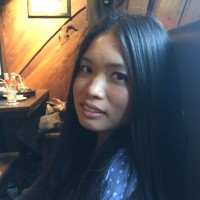Executive Summary
1. What were the most important developments in 2014 as far as courts decisions on FoE are concerned? In your opinion, was it a “good” year as far as the Justice sector protection of FoE?
2014 was bifurcated by the military coup d’état of May 22, 2014. While there were many problematic legal developments even prior to the coup, by Thai standards the civilian courts were relatively lenient in several of their freedom of expression judgments.
However, the military takeover was accompanied by the most serious crackdown on freedom of expression since the 1970s: people were arrested and given suspended jail sentences for “crimes” such as eating McDonald’s (a symbol of resistance to the coup) or failing to report to the junta in a timely fashion. In the four months following the coup, more than 850 people were summonsed or arrested for alleged acts of resistance. There was also a flurry of new lèse-majesté cases. In other words, this was a very bad year for freedom of expression in Thailand.
2. What were the key issues or themes that Courts addressed?
The key issues addressed were lèse-majesté, computer crime, and other charges concerning acts of resistance towards the coup, and failing to answer summonses to appear before the junta in a timely fashion. In addition, there were a number of new and ongoing defamation cases with serious implications for freedom of expression.
3. What were the decisions with the greatest legal importance and/or influence? The most significant development was the use of military courts to process many civilian defendants in freedom of expression cases, and criminalization of all manner of activities through sweeping use of junta announcements in conjunction with martial law Another important development was a further attempt to extend lèse-majesté provisions to cover a long-deceased monarch, in a new case against leading public intellectual Sulak Sivarak.
4. Was the international legal environment taken into account or referenced? Lawyers in a number of important cases brought before military courts argued that their clients’ rights under the ICPPR were being Perhaps surprisingly, the junta’s interim constitution stated that Thais remained protected by binding international obligations – with the implication that the ICPPR (which Thailand ratified in 1996) could be invoked. However, the military courts declined to accept this line of defense.
5. What shall we watch out for in 2015? What are the key cases on the agenda? Among the cases that should be watched closely in 2015 are those of: Thammasat University law professor Worachet Pakeerat; former education minister Jaturon Chaisaeng; political activist Sombat Boon-ngam-anong; lèse-majesté defendant Siraphop Kornarut; and human rights lawyer Anon All five cases exemplify the challenges facing freedom of expression in Thailand today. By pressing charges against a leading academic and a highly respected senior politician in military courts, the junta has chosen an alarming path of confrontation which adversely affects Thailand’s image as a nation conforming to international legal norms. By bringing similar charges against a prominent political activist and one of the country’s most high-profile human rights lawyers, the NCPO is sending strong signals that nobody should feel immune from its arbitrary dictats. These moves form part of an attempt to create a climate of total fear. The Siraphop case, the first in which a lèse- majesté defendant has sought to assert his innocence in a military court, marks a particularly intense stand-off.
To read the full report, please download the PDF version.


